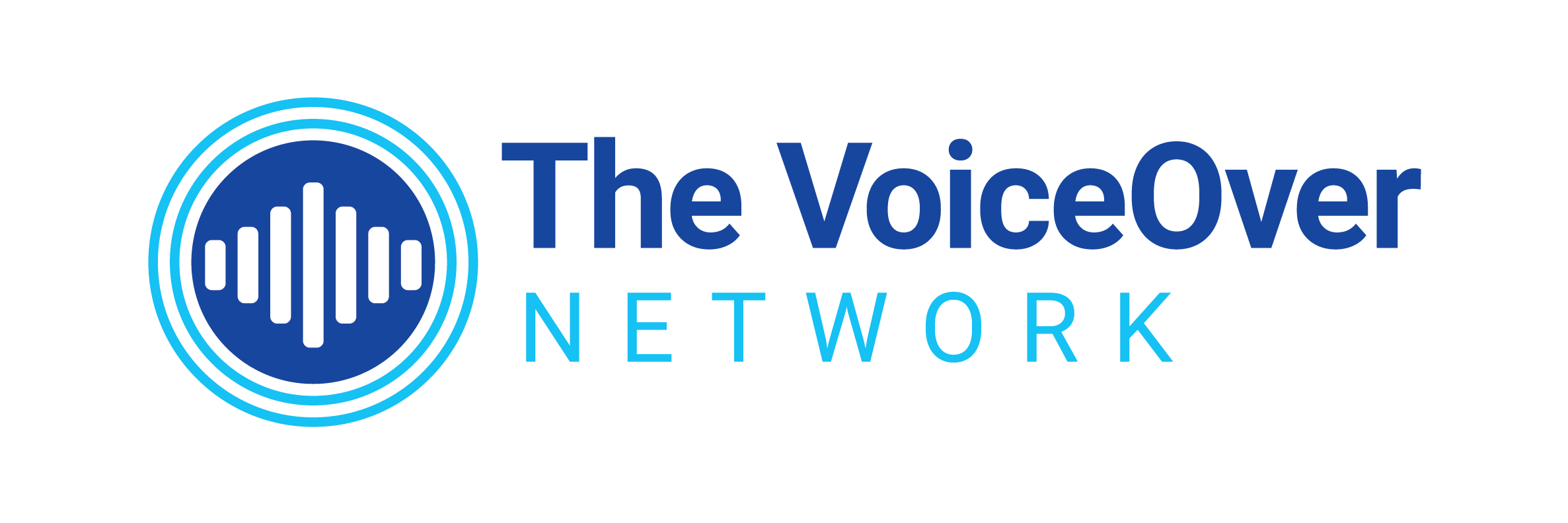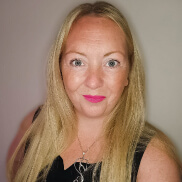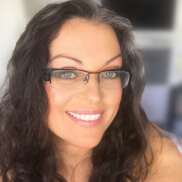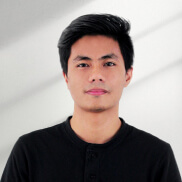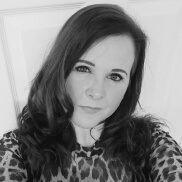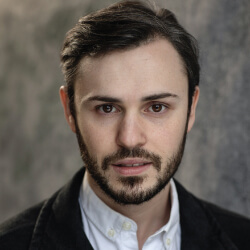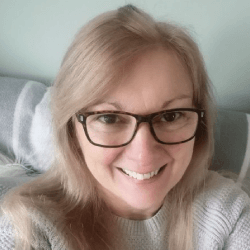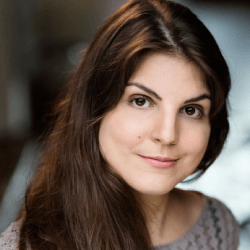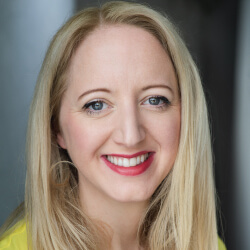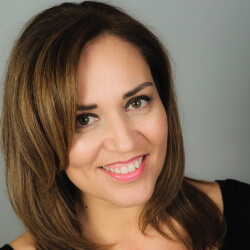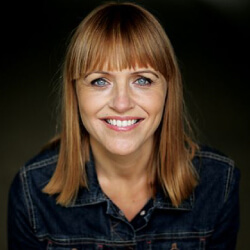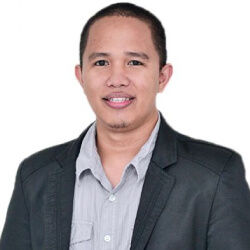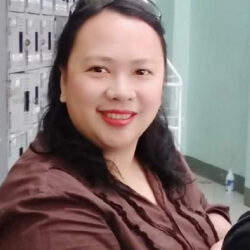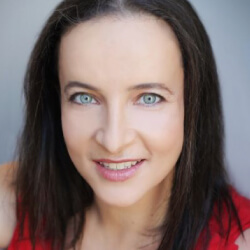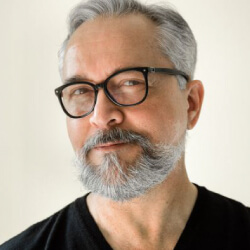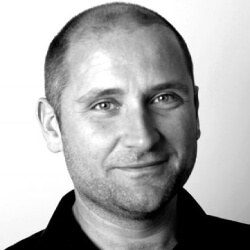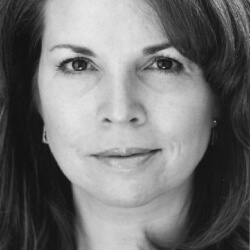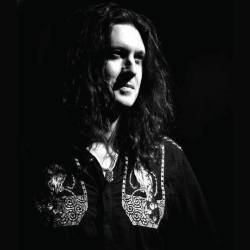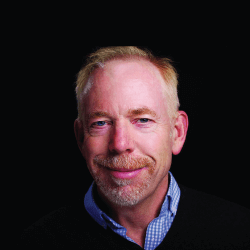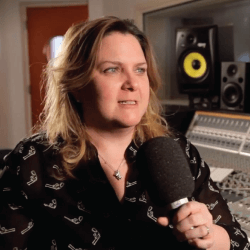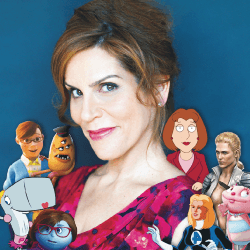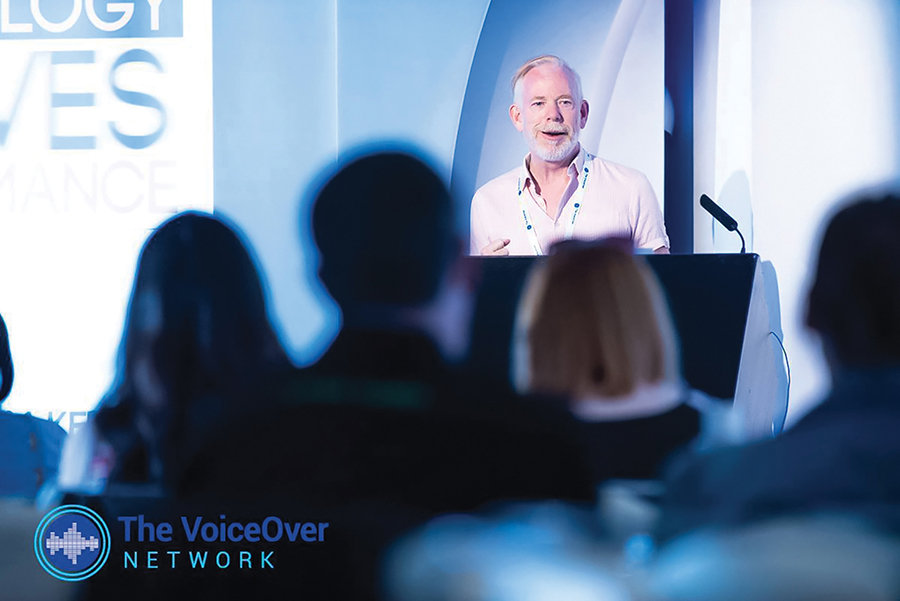
Share some highlights from your career?
TK: Here’s my career in a nutshell. I started out as an actor and I went to drama school. Even as a teenager I did some professional auditioning for commercials, I didn’t really have the support of my parents to go through with it, but at least I actually had some experience of it. And then, in my twenties, I worked in the dance theater performance world in New York. I had my own company there and I worked with a lot of other very interesting performance artists and choreographers, people such as Jean Erdman, who was one of Martha Graham’s principal dancers and who was married to the philosopher Joseph Campbell. They had a small theatre company, and I was in one of their productions. I spent several summers at this place called The Yard on Martha’s Vineyard, a dance theatre music project.
And then gradually I was primarily doing my own material with my partner Davidson Lloyd as Keegan and Lloyd. We were very well known on the early theatre circuit. Later,when I moved to LA, I started working more professionally. I did some TV commercials, a couple of movies and continued doing performance theatre.
My next career highlight was working at Hanna-Barbera and TV development on shows like Power Puff Girls, Johnny Bravo and Cowen Chicken. After that, I moved into kids educational software and worked on programmes such as Math Blaster and Reading Blaster and that gradually led to what I’m doing today.
My major career highlights in terms of games are The Darkness, The Chronicles of Riddick, the Wolfenstein Games, Resident Evil 2, Star Wars and I’ve done four of the Battlefield games.
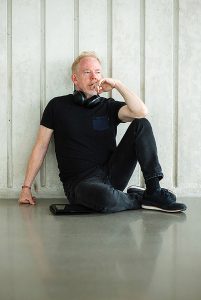
The theme of this edition of The Buzz magazine is success. So what does success mean to you?
TK: I always defined success for me as having the streams come together, all of the different things I was doing – the entrepreneur, the performer, the director, the writer, the creative artist. And that was my prayer for so long. I would say I found it when I had my first motion capture experience with the American Idol game in 2002 as a dance game.
What is it that successful actors are doing to get booked compared to unsuccessful actors?
TK: The successful actors that I know have the confidence to go into the audition or to do their own auditions, to go into the recording session or the performance capture session and play. And I know for myself, when I was an actor, I was a callback king. I got so many callbacks, but I would always get tense. It would be so high for me at the callback level that sometimes I literally could not hear what the people were saying to me. I was filled with anxiety. When I got on the other side of the desk, so to speak, the other side of the camera, I just was like, what was I so afraid of?
I remember one time I was auditioning actors in London and this actor, David Harewood came in and someone said, “Oh, David Harewood is here.” He hadn’t become very well known in America at that point. He was only well known in the UK, but he came in with this attitude of, “What do you want to try? Let’s play, let’s try something with this material. How do you envision it?” He had such confidence in collaborating with me.
“Training is critical throughout your career,
I’m still training myself.”
What would you say is happening in motion capture at the moment?
TK: There is more and more happening in motion capture. The great thing about it is that the stories and characters are epic, much more epic than you will find generally in television or in commercials or advertising. You might find that in doing audio books, but this adds the element of the body. And that’s very exciting. I have a stable of performers and I think there’s an opportunity for people who can do multiple characters and multiple voices physically and vocally. People can often focus on doing stunts, sword-play and weaponry, and that’s important, but there’s not enough on character and there’s not enough people really doing in-depth character with voice and movement. So I think there’s opportunity there.
Training is critical throughout your career, I’m still training myself. It’s really important because it keeps you fresh, gives you something new, something to work off. Whether it’s going to acting class, doing a VO workout, or writing, whatever it is, you’re getting something fresh. You’re challenging yourself. I think it’s critical that they’re doing some kind of on-your-feet acting.
Where do you get your inspiration?
TK: One huge source of inspiration for me is my teacher Judith Weston’s books. I’ll often just open a chapter and read a paragraph and it gives me some new perspective. Same goes for any of my other teachers who have written books, I’ll just open a paragraph and take a look. I’m more of a reader than a watcher. In fact, when I see really good stuff on TV or in a movie, I’m inspired by that.
Art and music are super important to me. Sometimes when I’m working on a big piece, I think of it like a meal, what flavour does it need? What’s the main course? What’s the appetizer? What seasonings do I want to use, where do I want to sprinkle them around and how does the experience progress?
How does the evolution of the pandemic affect the evolution of video games?
TK: I think that video games have been a bit pandemic proof. And I think people have continued to play, so the business has been very solid throughout the pandemic.
I would say the pandemic has made it even more international and made it possible to work with performers from all over the world.
What advice would you give people auditioning from home?
TK: Every game I’ve done in the last year, we’ve auditioned everyone over Zoom. It’s made it harder in certain ways though, because we can’t travel and can’t bring people in, so it’s made performance capture more local. I think being part of The VoiceOver Network and organizations like VON are a great way for people to continually refresh, stay in touch and form a community around this business.
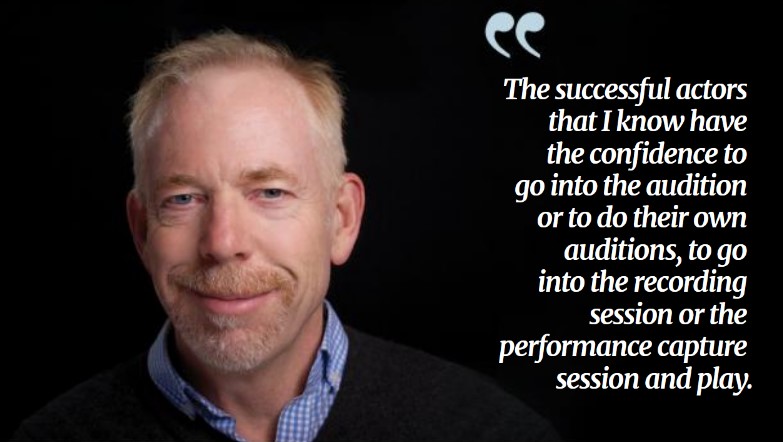
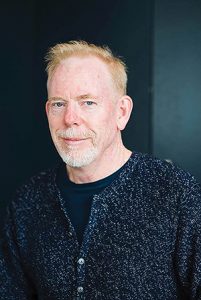
Tom Keegan
Director, Performance Capture,
Video Games, Voiceover and Films
